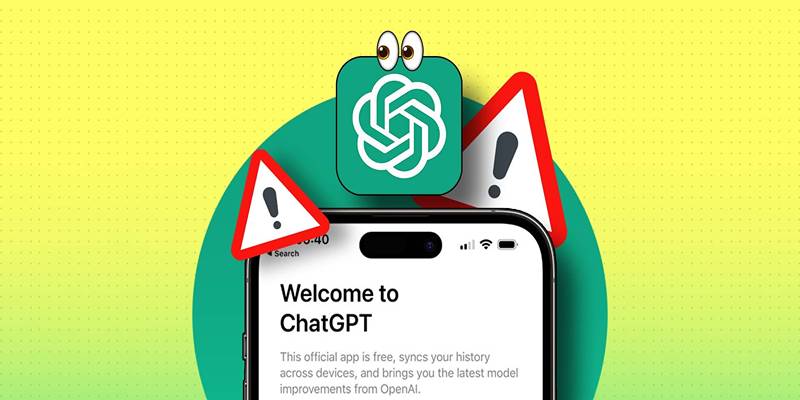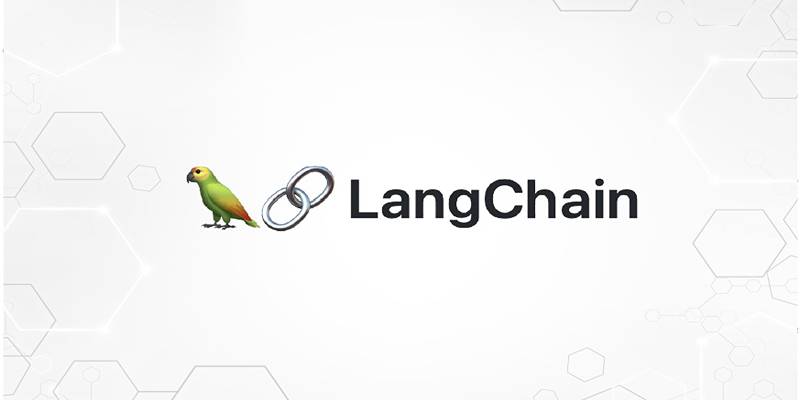Advertisement
As artificial intelligence (AI) changes, new tools are made to meet the rising need for digital assistants that are smarter, safer, and more flexible. Among these is Claude AI, a conversational AI developed by Anthropic. While it may share similarities with well-known models like ChatGPT, Claude stands out due to its focus on ethical alignment, transparency, and responsiveness.
Claude AI is designed to function as a helpful, honest, and harmless assistant. It reflects the mission behind its creation, which prioritizes safety and reliability in AI interactions. As more people and businesses integrate AI into their daily workflows, tools like Claude are positioned to become essential companions. This post examines Claude AI's core design, highlights its ethical and practical advantages, and explains why it stands out as a reliable, user-friendly, and responsible AI assistant across a wide range of real-world applications.
One of the core distinctions of Claude AI lies in its design philosophy. While most large language models aim for efficiency and performance, Claude is built with an added layer of caution and alignment. Anthropic uses a method known as “constitutional AI”, which trains the model using a set of predefined ethical principles instead of relying purely on human reinforcement feedback.
This approach helps Claude respond in ways that are not only useful but also safe and considerate. The model is trained to avoid harmful content, decline inappropriate requests, and maintain a balanced tone—even during controversial or sensitive topics.
Another key differentiator is the user interface and experience. Claude is often perceived as more conversational and contextually aware, with the ability to maintain logical continuity across exchanges. For users, this translates into more fluid interactions and fewer misunderstandings.

As AI tools become more deeply integrated into business operations, education, and content creation, Claude AI brings a set of distinct advantages that make it worth considering.
At the forefront of Claude’s development is a strong ethical foundation. This commitment ensures that the AI behaves in ways that are consistent with human values. It reduces the risk of generating biased, offensive, or misleading responses—a concern often raised with powerful AI models.
It makes Claude an appealing choice for organizations that prioritize data integrity, safety, and accountability in their tools.
Claude excels at understanding natural language and generating relevant, high-quality text. Whether the task involves writing articles, explaining concepts, drafting emails, or summarizing long documents, the model delivers responses that are coherent and logically structured.
Its ability to remain on-topic and provide comprehensive information makes it suitable for professional and academic environments where precision matters.
Maintaining context is a key challenge in AI conversations. Claude is built to remember the flow of conversation, allowing it to provide responses that reflect the ongoing dialogue. It makes it more capable of managing longer interactions or supporting multi-step tasks.
For users who rely on AI for research, analysis, or ongoing tasks, this contextual continuity enhances productivity and reduces repetitive rephrasing.
Thanks to its “constitutional” training approach, Claude generally avoids giving harmful advice, engaging in inappropriate dialogue, or making unsupported factual claims. It adds a layer of predictability and trustworthiness, which is especially important in enterprise or educational settings.
From content creators and marketers to teachers and developers, Claude serves a wide range of industries. It can be used for brainstorming, tutoring, knowledge management, customer service automation, and more. This broad applicability makes it a multipurpose AI solution that can adapt to varying user needs without extensive configuration.
Claude AI is designed to behave in a transparent and explainable manner, which is critical when integrating AI into regulated industries or high-stakes environments. Users can typically understand why the model gives certain responses due to its principled training. It makes it easier to audit, justify, and trust the system's output—something especially valuable in sectors like finance, healthcare, and law.
One of the common challenges with large language models is their tendency to "hallucinate" or generate incorrect information confidently. Claude mitigates this issue through its constitutionally guided training, which encourages factual consistency and self-correction. While not immune to errors, its tendency to flag uncertainty or avoid speculation helps ensure users are not misled by overconfident misinformation.
Claude’s conversational tone, user-friendly interface, and refusal to engage in unsafe or confusing dialogue make it especially accessible for users without technical expertise. It democratizes the use of AI tools, allowing individuals in non-technical roles—such as HR professionals, students, writers, or customer service agents—to engage with the technology effectively and safely.
Claude AI can be tailored to match specific user preferences or organizational needs. Through prompt engineering and instruction tuning, users can guide Claude's tone, detail level, and response style. This adaptability makes Claude suitable for varied audiences, whether a brand needs a formal, professional tone or a casual, engaging voice in content delivery.

Anthropic actively improves Claude through updates that enhance its reasoning, accuracy, and safety. While Claude doesn’t learn from individual user sessions to preserve privacy, it benefits from iterative training and refinement across its versions. It ensures users always have access to an AI model that reflects the latest research, safety protocols, and performance enhancements.
Claude AI represents a thoughtful advancement in the field of generative AI. It blends high-performing language capabilities with ethical integrity and context awareness, positioning itself as a standout tool in a crowded field of AI assistants.
While it should not be viewed as an all-knowing expert, its strengths in safety, clarity, and versatility make it a valuable addition to any digital workflow. For those looking to explore the benefits of conversational AI with confidence and reliability, Claude offers a modern, well-rounded solution worth considering.
Advertisement

If ChatGPT isn't working on your iPhone, try these 8 simple and effective fixes to restore performance and access instantly.

Explore 8 of the best AI-powered apps that enhance productivity and creativity on Android and iPhone devices.

What is a database, and why is it essential in managing information? Learn how databases keep data organized, secure, and accessible in everyday life

Amazon CEO Andy Jassy highlights the importance of AI investment in his annual letter, outlining how artificial intelligence strategy is shaping the company’s growth and innovation plans

Explore how LangChain helps developers create smarter, scalable apps using LLMs, tools, memory, and workflows.

Explore 6 ways ChatGPT enhances video game scriptwriting through dialogue, quest, and character development support.

Learn what AI red-teaming means, why it matters for AI safety, and how it helps find and fix risks in different AI systems

Discover how Emotion AI systems detect facial expressions, voice tone, and gestures to interpret emotional states.

Adobe’s new AI features in Premiere Pro are revolutionizing video editing. Learn how AI can help with color matching, audio cleanup, and scene detection to save you time

Writer's Palmyra Creative LLM transforms content creation with AI precision, brand-voice adaptation, and faster workflows

This guide shows how to set up ChatGPT on Android and iOS for private, smooth, and on-the-go AI conversations.

Learn how ChatGPT can improve your habits, mindset, health, and daily life with smarter planning and consistent support.